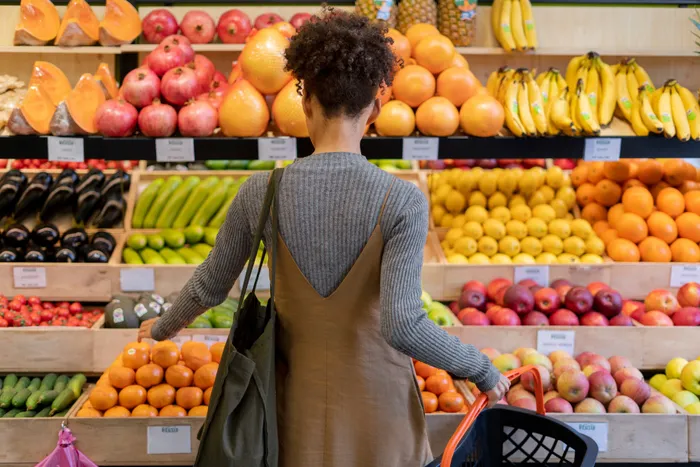
Agricultural Business Chamber of South Africa (Agbiz) said that South Africa’s consumer food price inflation rose to the highest level in 16 months, at 4.7%, in June 2025, from 4.4% in May.
Image: Independent Newspapers
Agricultural Business Chamber of South Africa (Agbiz) said that South Africa’s consumer food price inflation rose to the highest level in 16 months, at 4.7%, in June 2025, from 4.4% in May. Agbiz attributed the recent increases in the price of meat, oils and fats, and vegetables. Pietermaritzburg Economic Justice and Dignity Group (PMBEJD) and Black Sash have echoed similar sentiments.
Wandile Sihlobo, Agbiz chief economist, said that the increase does not alter their assessment of moderate food price inflation in 2025. “The increase in the meat price inflation was caused by two significant factors, which have somewhat eased. First, the outbreak of avian flu in Brazil led to South Africa temporarily restricting imports of poultry products from the country, and this caused panic in the market.”
Sihlobo added that South Africa imports roughly 20% of its annual poultry needs and Brazil is one of the key suppliers. “However, the restrictions have now been lifted and imports are expected to recover in the coming months. The restrictions were necessary to ascertain the scale of avian flu in Brazil and ensure that it was eradicated before imports could resume. South Africa has received confirmation that Brazil has successfully eradicated the disease and lifted the ban on imports.”
Sihlobo said that South Africa experienced an outbreak of foot-and-mouth disease, which led to concerns about red meat supplies and some panic buying, temporarily pushing up prices. “This was particularly true after the country’s largest feedlot reported an outbreak. This was followed by a vaccination campaign to limit the spread of the disease. Slaughtering has now resumed in the major feedlots, and we are seeing some easing in red meat prices, which should be reflected in the inflation figures of the coming months. This was followed by a vaccination campaign to limit the spread of the disease.”
Sihlobo added that this does not mean the foot-and-mouth disease is over in South Africa — far from it. “The livestock industry remains in a challenging condition, with increasing costs affecting cattle farmers and feedlots.”
Sihlobo said that regarding the oils and fats, the local market somewhat mirrors the trades we see globally, and the United Nations Food and Agriculture Organisation’s Vegetable Oil Price Index has remained elevated in recent times because of strong global demand for palm oil.
Mervyn Abrahams, director of PMBEJD, said any increase in food under the current economic climate has a negative effect on the purchasing power for consumers, and more so on low-income earners. “As we have indicated through the Household Affordability Index throughout the past, that food prices continue to rise, it is very concerning that the current food inflation is at a 16-month high.”
Abrahams said that items such as meats, fish, oils, and vegetables are essential as opposed to being luxuries; however, food inflation over the past months has meant that for many families, they become luxuries. “This, of course, is a major concern for the PMBEJD because, simply put, it means there are children mainly that are deprived of essential body-building nutrients at a crucial stage in their lives, and this often results in stunting.”
Abrahams added that while they hope for the situation to improve, if the current pattern is anything to go by, we fear that there is a likelihood of a further increase this year, which will have a negative effect on consumers that are already under pressure.
Evashnee Naidu, regional manager for Black Sash in KwaZulu-Natal, said that she notes with concern the figures of food inflation which has risen to its highest level in 16 months. “Poor and vulnerable households continue to be impacted by escalating food prices, with no visible end in sight. Social grant increases that came into effect in April of this year were immediately eroded by food prices, whilst the SRD R370 grant remains unchanged, despite the severe economic climate.”
BUSINESS REPORT
https://businessreport.co.za/

Agricultural Business Chamber of South Africa (Agbiz) said that South Africa’s consumer food price inflation rose to the highest level in 16 months, at 4.7%, in June 2025, from 4.4% in May.
Image: Independent Newspapers